Levi’s has been making progress in sustainable fashion, with the goal of reducing water usage and responsibly sourcing cotton by 2025. However, concerns arise regarding transparency issues and labor practices. While their Water Levi's, the world's top-selling denim brand, has made significant strides in sustainability and ethical practices while aiming to lead the industry in responsible production. With a revenue of US$6.2 billion in 2022, Levi's understands its influence and has introduced the Living Our Values Code of Conduct in 1991 to promote responsible production practices. This initiative has inspired other ethical brands to adopt similar standards. To enhance transparency, Levi's has improved its labor conditions rating, now scoring 60% on Fashion Revolution's Transparency Index. This progress reflects the brand's commitment to tracing its supply chain more effectively. Additionally, Levi's has set ambitious sustainability targets, including a goal to reduce water use by 50% in high-stress areas by 2025. They also aim to achieve 100% sustainably sourced cotton by the same year. In addition to these efforts, Levi's focuses on gender equality within its supply chain and has achieved Zero Discharge of Hazardous Chemicals across most of its operations. By addressing these critical issues, Levi's is positioning itself as a leader in sustainable denim, setting a high bar for the industry. Levi's is making significant strides in environmental sustainability, and you might be surprised by their innovative water conservation initiatives. They're not just cutting down on water usage; they're also focusing on sourcing sustainable materials to reduce their overall impact. As part of its commitment to sustainability, the brand is focused on substantially reducing water usage in its production processes. Levi Strauss has set an ambitious goal to cut water consumption by 50% in high-stress production areas by 2025. Since launching the Water<Less™ initiative in 2011, it has successfully saved 770 million liters of water—enough to cover New York City's monthly consumption. Moreover, about 37% of the climate impact from Levi's 501 jeans comes from consumer care, highlighting the importance of water conservation during washing. To address this, the company encourages you to adopt ethical and sustainable washing habits, such as hand-washing and line drying, to further minimize environmental impact. Levi's is also making strides towards 100% sustainably sourced cotton by 2025, leveraging initiatives like the Better Cotton Initiative and aiming for GOTS certified organic cotton. To create a more sustainable future, Levi's is committed to achieving 100% sustainably sourced cotton by 2025, utilizing organic, recycled, and Better Cotton to lessen its environmental impact. This initiative reflects their dedication to sustainable material sourcing and eco-friendliness. Here are some key efforts Levi's is making in this area: Through these practices, Levi's not only focuses on the quality and durability of their products but also demonstrates a commitment to a greener future. Concerns about labor conditions within Levi's supply chain persist, particularly regarding fair compensation and worker safety. While Levi's has made some progress, receiving a rating of 'It's a Start' on the transparency index, it still falls short of ensuring living wages for all workers. This raises significant questions about fair trade practices within their operations. The brand's refusal to sign the International Accord has drawn criticism, especially regarding health and safety measures in factories located in Bangladesh and Pakistan. You may recall incidents like the 2022 gas leak in Karachi, which highlighted serious safety issues in Levi's production facilities. These events underscore the ongoing challenges related to worker health and safety. Despite their efforts to trace most of their supply chain, Levi's faces backlash for lacking third-party verification of labor standards. As a consumer, you might wonder if Levi's can truly be considered a leader in ethical denim when these labor conditions remain problematic. Until these issues are addressed, it's hard to fully embrace Levi's claims of sustainable fashion. When it comes to animal welfare practices, you might be concerned about Levi's sourcing of leather and other animal products. While the brand avoids fur and supports non-mulesed wool, it doesn't provide clear traceability for leather and down, which raises questions. Understanding these practices is essential for making informed choices about your fashion purchases. Levi's leather sourcing practices raise significant questions about animal welfare due to their lack of transparency and established guidelines. While the brand has made strides in sustainable practices, the use of leather still raises concerns. You might find it surprising that: Although Levi's has committed to traceability in its animal welfare policy, the lack of specific guidelines for leather procurement is troubling. Without transparency and robust certification processes, it's tough to trust that the leather used in Levi's products aligns with your ethical values. As you consider your choices in sustainable fashion, these sourcing concerns about leather and animal welfare are vital to keep in mind. Understanding the traceability of animal products in Levi's supply chain is essential for consumers seeking ethical fashion choices. While Levi's has established an animal welfare policy that calls for traceability, it still uses leather, down, and wool without specifying their sources. This lack of transparency raises concerns about ethical sourcing, particularly since the brand has received a 'Not Good Enough' rating in animal welfare practices. Though Levi's avoids using fur, angora, and exotic animal skins, the absence of thorough traceability for all animal products highlights an area for improvement. For consumers who prioritize sustainable fashion, this gap in sourcing transparency can be disheartening. Levi's does support sourcing wool from non-mulesed sheep, which is a positive step, but more needs to be done. As consumer demand for better animal welfare practices continues to grow, it's likely that Levi's will feel the pressure to enhance its animal product sourcing transparency. By doing so, they can align more closely with ethical sourcing standards and respond to the increasing desire for responsible fashion choices. Examining mulesing practices reveals significant animal welfare concerns that impact the ethical standing of brands like Levi's. While the brand has made some progress, its sourcing of animal products still raises eyebrows. Here are a few key points to reflect on: As you look for sustainable jeans, it's crucial to hold brands accountable for their animal welfare practices. Consumer pressure can drive Levi's to adopt stricter sourcing standards, ensuring that their products align with your values. What're some ethical alternatives to contemplate if you're looking for sustainable denim options? One standout is MUD Jeans, which uses GOTS certified organic and recycled cotton, saving over 6,400 liters of water per pair. Nudie Jeans is another great choice, offering 100% organic cotton denim and providing free repairs for life, promoting a circular fashion model. Kings of Indigo is a vegan brand that utilizes eco-friendly fabrics while ensuring ethical labor practices, thanks to its affiliation with the Fair Wear Foundation. If you're prioritizing organic cotton, Kuyichi exclusively employs it and rigorously audits suppliers for sustainability, making it a solid ethical alternative to Levi's. Lastly, Unspun takes a unique approach with its zero-inventory model and customizable fit, greatly reducing carbon emissions. These fashion brands not only offer stylish jeans but also embody principles of sustainable clothing and ethical alternatives. By choosing these brands, you can enjoy fashionable, eco-friendly denim while minimizing your carbon footprint. Rising consumer awareness is driving a significant shift towards sustainable fashion, with many shoppers willing to pay more for ethical products. This shift not only helps you make a positive impact but also encourages brands to adopt more responsible practices. As you consider your purchasing choices, keep in mind the following trends: As you navigate the marketplace, your choices can foster a culture that prioritizes ethical treatment of workers and environmental responsibility. Levi's sustainability efforts are notable, with commitments to sustainable cotton and water conservation. However, you should consider their labor practices and animal welfare issues before deciding if they truly meet your sustainable fashion standards. You might find it shocking, but Levi's faced a storm of controversy. From toxic chemicals polluting waters to unsafe factory conditions, the brand's history is marred by scandals that raise serious questions about its ethical practices. Yes, Levi's CEO Chip Bergh suggested you shouldn't wash your jeans frequently. Instead, he recommends spot cleaning and air-drying to extend their lifespan and reduce environmental impact, promoting a more sustainable approach to denim care. Levi Strauss' commitment to sustainability shines bright. You'll appreciate their goals for 100% sustainably sourced cotton, reduced water usage, and a dedication to transparency, ensuring you wear jeans that honor both style and the planet. Nike has been making strides in the sustainable fashion industry, much like Levi’s. With their “Move to Zero” initiative, Nike is committed to reducing their carbon footprint and creating more eco-friendly products. This proves that Nike is dedicated to promoting is nike sustainable fashion. In the end, deciding if Levi's is truly sustainable hinges on your values and priorities. While they've made strides in environmental initiatives, labor concerns and animal welfare practices still cast shadows on their reputation. Think of it as a balancing act—can you weigh the good against the bad? As consumers, we hold the power to drive change, so let your choices reflect the future you want to see in the fashion industry.Key Takeaways
Brand Overview and Initiatives
Environmental Sustainability Efforts
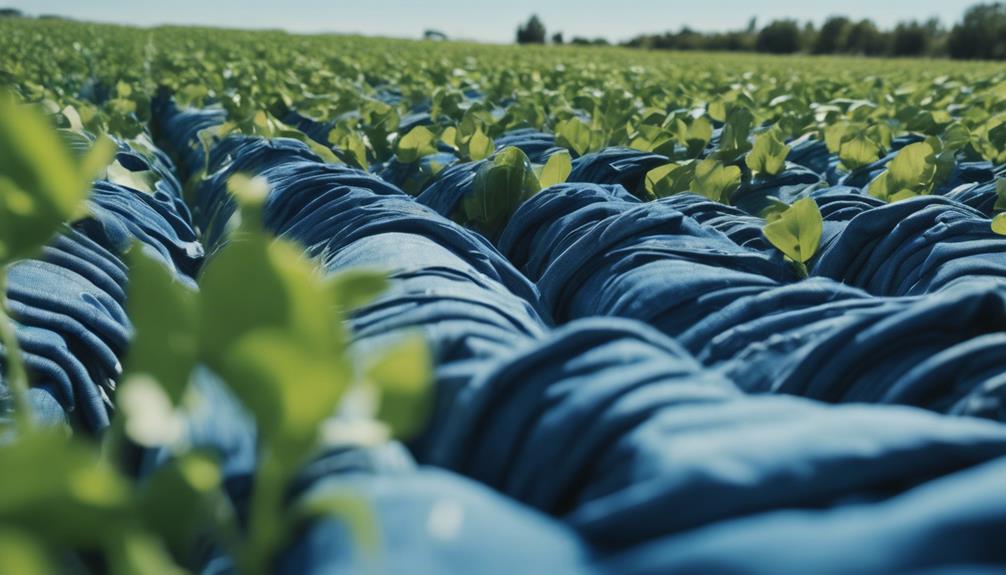
Water Conservation Initiatives
Sustainable Material Sourcing
Labor Conditions and Concerns
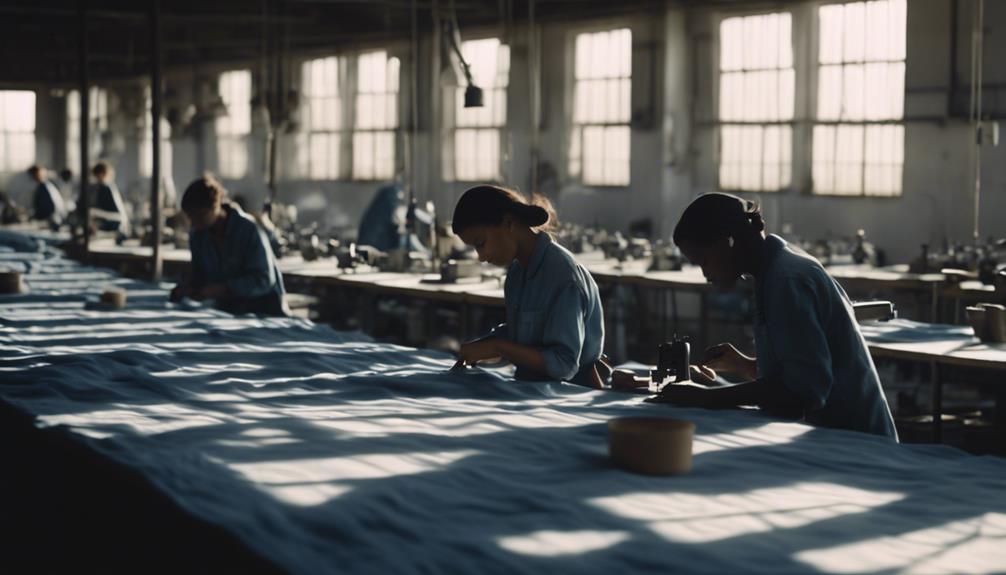
Animal Welfare Practices
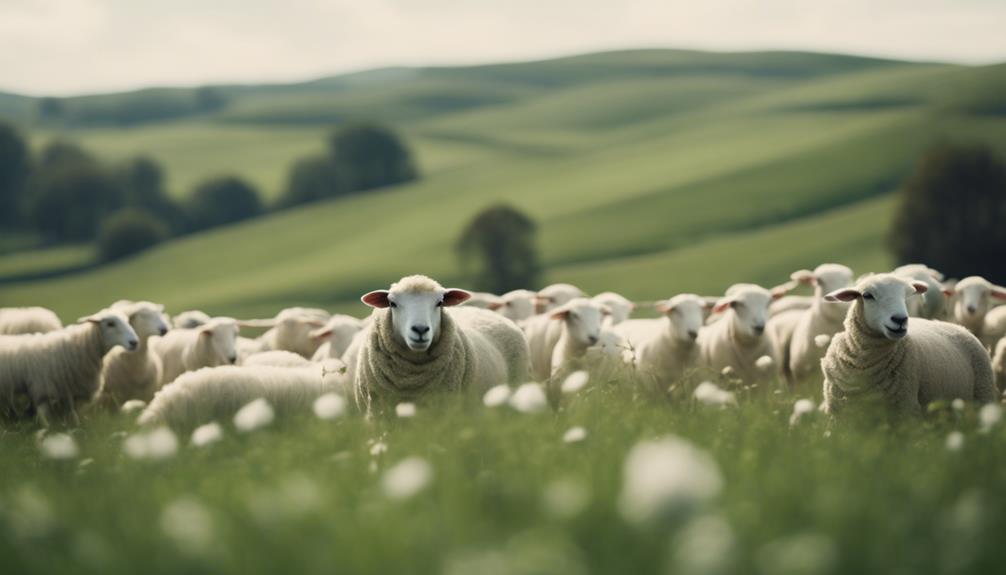
Leather Sourcing Concerns
Animal Product Traceability
Mulesing Practices Impact
Ethical Alternatives to Levi's

Consumer Awareness and Future Trends
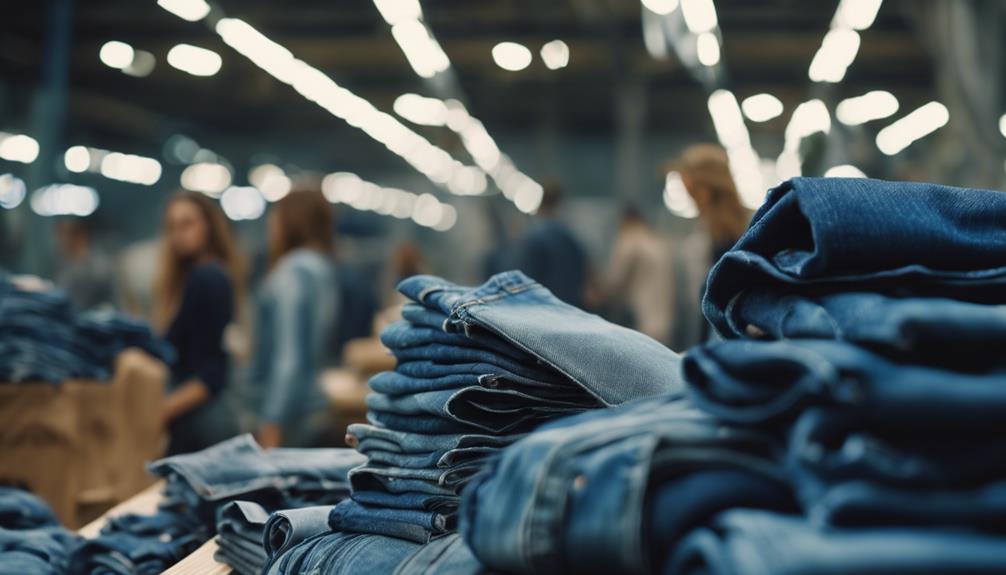
Frequently Asked Questions
Is Levi's Really Sustainable?
What Is the Levi's Scandal?
Did Levi's CEO Say Not to Wash Jeans?
What Is Levi Strauss Commitment to Sustainability?
Is Nike Following in Levi’s Footsteps in Creating Sustainable Fashion?
Conclusion
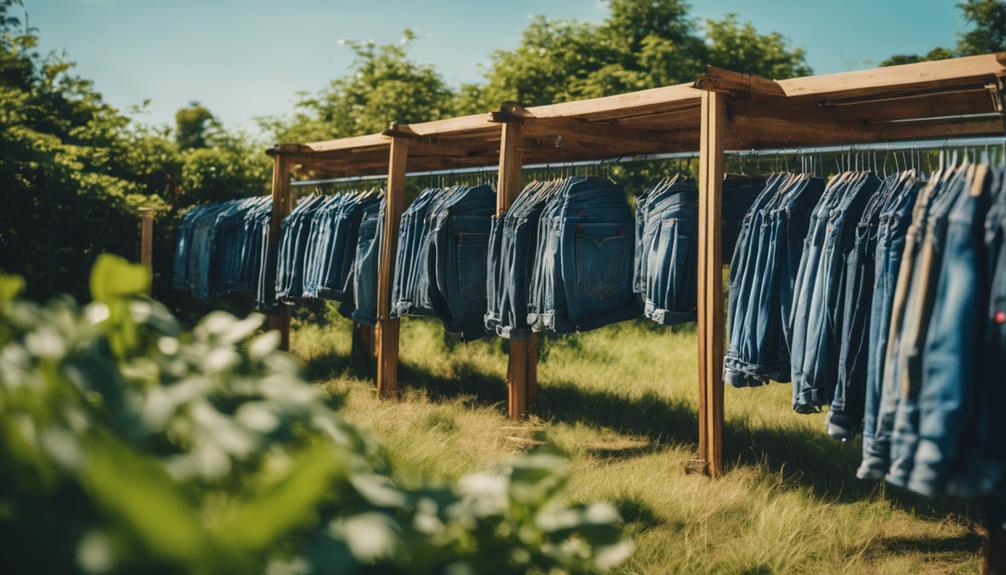
Is Levi's Sustainable Fashion? You Won’t Believe the Answer!
But are their sustainability claims enough to outweigh the hidden issues lurking beneath? Discover the truth about Levi's sustainable fashion journey!
Earth Tones Return: Clay, Rust, and Moss
The return of earth tones like clay, rust, and moss signals a shift toward sustainable…
- Ava Martinez
- December 18, 2025
Patchwork Everything: Quilted Coats and Skirts
I’m captivated by patchwork coats and skirts that blend vintage charm with eco-friendly…
- Ava Martinez
- December 17, 2025
Shearling and Sherpa: Cozy Textures in Focus
Looking to elevate your winter wardrobe with cozy textures like shearling and Sherpa?…
- Ava Martinez
- December 17, 2025
Modern Crochet: From Runway to Real Life
The transformation of crochet from runway innovation to everyday style is inspiring,…
- Ava Martinez
- December 16, 2025








